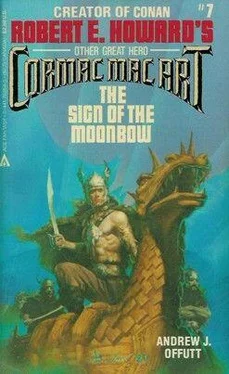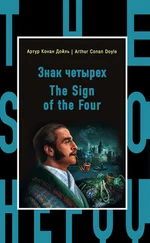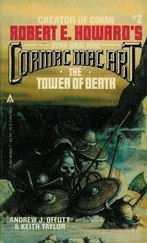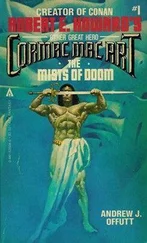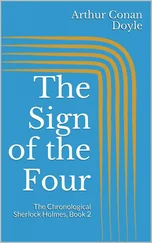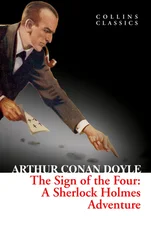Andrew Offutt - The Sign of the Moonbow
Здесь есть возможность читать онлайн «Andrew Offutt - The Sign of the Moonbow» весь текст электронной книги совершенно бесплатно (целиком полную версию без сокращений). В некоторых случаях можно слушать аудио, скачать через торрент в формате fb2 и присутствует краткое содержание. Жанр: Фэнтези, на английском языке. Описание произведения, (предисловие) а так же отзывы посетителей доступны на портале библиотеки ЛибКат.
- Название:The Sign of the Moonbow
- Автор:
- Жанр:
- Год:неизвестен
- ISBN:нет данных
- Рейтинг книги:3 / 5. Голосов: 1
-
Избранное:Добавить в избранное
- Отзывы:
-
Ваша оценка:
- 60
- 1
- 2
- 3
- 4
- 5
The Sign of the Moonbow: краткое содержание, описание и аннотация
Предлагаем к чтению аннотацию, описание, краткое содержание или предисловие (зависит от того, что написал сам автор книги «The Sign of the Moonbow»). Если вы не нашли необходимую информацию о книге — напишите в комментариях, мы постараемся отыскать её.
The Sign of the Moonbow — читать онлайн бесплатно полную книгу (весь текст) целиком
Ниже представлен текст книги, разбитый по страницам. Система сохранения места последней прочитанной страницы, позволяет с удобством читать онлайн бесплатно книгу «The Sign of the Moonbow», без необходимости каждый раз заново искать на чём Вы остановились. Поставьте закладку, и сможете в любой момент перейти на страницу, на которой закончили чтение.
Интервал:
Закладка:
The old man looked most sorrowful indeed. “Not a morsel.” He sighed. “The queen’s own advisor-reduced to thievery!” And he vanished.
“Ouch!” Wulfhere grunted. “Erris! I did but fondle what normally ye wear bare-where’s he gone now, Wolf?”
“To someone’s kitchen or storehouse, there to snatch provender for us, poor man,” the Gael said. “Do ye have animals in Moytura, Erris?”
She frowned. “Animals… oh! I’ve heard of such-no. They live on that which we cannot grow here, Cormac mac Art. Wulfhere-please! Many kinds of mollusc we have, for we have cultured them and coaxed them over the years to… modify, so I’m taught. And fish aplenty too, of many varieties. And lichens, and oh! marvelous mushrooms of more than one variety. Ye-ye’ve seen… animals? Legend has it such were here, once, but could not survive. Beasts that walk like… like us?”
“On four legs. But whence comes the cloth for your clothing, for these drapes?”
“The mif and the great spiders,” she said, and when questioned she explained that the mif was a great worm that throve here within the earth, and of its dried slime excellent cloth was made, along of course with the filaments spun by spiders Cormac did not care to see.
“Ugh,” Wulfhere said succinctly and with fervour.
“An ye like not our cloth,” Erris said, low-voiced, “keep your enormous hands away from this I wear, then.”
“Mayhap we can find time and place to remove it together,” Wulfhere said, “later.”
Cormac sighed, turning away-and Dithorba was there, bearing food stolen from someone’s very cookfire, for the pot was hot and issuing a most savoury aroma.
Thrice he left them, and thrice he returned laden, and none asked questions. They ate and drank then, four of them; Thulsa Doom required no nourishment.
The visitors learned that nay, not all rooms in Moytura were carved from living rock as was this one; stone was cut and used in building, and there was a mortaring paste they had made, too, to hold together blocks of stone in this land of no baking sun, no softening rain, no freezing snow or ice. In a great pool and in the two rivers that ran near there were creatures of sea and fresh water, and some were of a sort never seen above. Their hides were much used; as mining was constant and iron and silver plentiful, frames were easily made for the stretching of hides of walrus and water-creatures even bigger. Every scrap of cloth otherwise came from spiders and mifhe; the large snow-hued worms fed on the gigantic mushrooms that throve here within the earth. The queen’s adviser, the handmaiden, and the two weapon-men from above dined well on dishes of various fish and molluscs and mushrooms, and when Wulfhere made brag on one dish, he was advised that it was comprised of mushrooms, a mussel they called ab, snails and two kinds of lichen. Whereupon the Dane deemed himself sufficiently well fed to confine his grinding teeth to fish and a mushroom dish.
And what of the pearly light that bathed sunless Moytura?
Dithorba, who was indeed possessor of few necromantic and thaumaturgic powers or knowledge, could not tell them. It had been devised, or brought by the first settlers from the land above, long and long agone. It was Danu’s light. She shed her silvery moonish glow on her own that they might not have to dwell in darkness but were ever in this soft twilight, and no more Dithorba Loingsech knew.
Nor did he know what was meant by steel. None such was there in all Moytura, a land sprawling, large as Meath above, among natural caverns and chambers and those created by men, beneath and within a seabound land anchored to the ocean’s floor. Too, the working of iron was no ancient skill with them, and it became plain, now, how long ago the Gaels had bested the People of Danu, for all their magickal powers.
For it was the Gaels had brought iron to Eirrin, whose people-the Tuatha de Danann-were workers and users only of bronze; the tin they needed for their plentiful copper came from Britain. Since then the Gaels had learned to modify their iron unto the making of steel, while those of Moytura had progressed only so far, as iron. All was wrought, and impregnated with tiny bits of slag. Apparently bars of wrought iron were not here packed with charcoal in containers of clay, so that with sufficient heat it became steel. Nor did Cormac or Wulfhere advise Dithorba of the process.
“Steel,” Gael said to Dane, “cuts iron.”
“And these men are small,” Wulfhere said, with a hand beneath the table of stone; despite her protestations, Erris had taken seat beside him. “Umm. Fair odds for me here would be about a half-score to my one, then.”
Cormac gave him a look. Seeing that the man was serious, mac Art rose and roamed the room, high-bending his legs, swinging and cranking his arms, now and again bending suddenly or dropping into a squat. He had just eaten well, and would not ask for possible danger and the necessity of all skill and agility until he was certain his body was ready.
It was. His skull had been unbroken by the blow; ale and food had done away with his headache, and a pair of bruises were little to him who had fought with far worse wounds and debilities.
“The direct way would seem best, Dithorba. Will you be taking me to the dungeon?”
“Loki’s wiles,” Wulfhere swore, “what a request!” Then he added, to Dithorba, “And return instanter for me.”
“He will not,” Cormac said, while Dithorba fetched a robe to take to his queen, “unless there’s sorest need. Despite the Chains of Danu, Wulfhere-remain ye here… with Erris.” Seeing the Dane’s grin, Cormac added, “-and Thulsa Doom.”
Dithorba came, carrying a robe. Helmeted, cracked shield on arm, sword girt at his left hip, Cormac extended a hand. Dithorba took it; the others saw the two men become not-there, and there was a slapping sound in the ears of Wulfhere and Erris and Thulsa Doom. Again Cormac was experiencing the unpleasant dissociative sensation, the dizzying spinning of his brain. Again he staggered and again temporary bewilderment was on him, as of his just having wakened.
He blinked, came alert, swiftly cleared his head while his hand left the Danan’s and went to the pommel of his sword. There was reality and security and comfort there, in the familiar heat-hardened wood with the cool spots that were insets of bronze and silver, tooled and chiseled and all designed and well shaped for enwrapping fingers.
Hand on hilt, Cormac mac Art looked about.
Here was eldritch gloom. No penetration was effected by the strange light of the moon that was Danu’s property and manifestation. Illumination there was, aye, and of a sort familiar to mac Art. This light was the pallid, ever-restless yellow of torches set in iron cressets or peg holes drilled into walls of forbidding and gloomy stone. Here no drapes hung to soften or add colour to these rocky walls. There was only the stone, living stone, a mottled grey that was darker higher up, from the greasy smoke of torches and oil lamps and braziers. Iron poles braced the walls and there were shelves formed of the outsized tap-roots of great trees, for these provided wood for the Danans and Cormac now understood why mighty trees died unaccountably on the surface of Eirrin. His eyes swept cell-like divisions, stone and hide and wood, with great doors on iron hinges.
To his nostrils came the odours of smoke and sweat, and too there lingered the acrid stenches of excrement and of urine. He knew they were of human origin. And he knew that much of the sweat had poured forth in fear and pain.
Chains gleamed dark and sinister, dark-splotched tables squatted malignantly about the floor. His gaze paused at a large brazier of black iron, set on iron legs above a firepit. From the pot thrust several dark stems of iron, each equipped with wooden grips. To facilitate wielding when the irons are hot , he mused grimly. The coals beneath the brazier were still golden and the air seemed to quiver above them. Cormac’s lips tightened. He’d seen torture-irons before.
Читать дальшеИнтервал:
Закладка:
Похожие книги на «The Sign of the Moonbow»
Представляем Вашему вниманию похожие книги на «The Sign of the Moonbow» списком для выбора. Мы отобрали схожую по названию и смыслу литературу в надежде предоставить читателям больше вариантов отыскать новые, интересные, ещё непрочитанные произведения.
Обсуждение, отзывы о книге «The Sign of the Moonbow» и просто собственные мнения читателей. Оставьте ваши комментарии, напишите, что Вы думаете о произведении, его смысле или главных героях. Укажите что конкретно понравилось, а что нет, и почему Вы так считаете.
